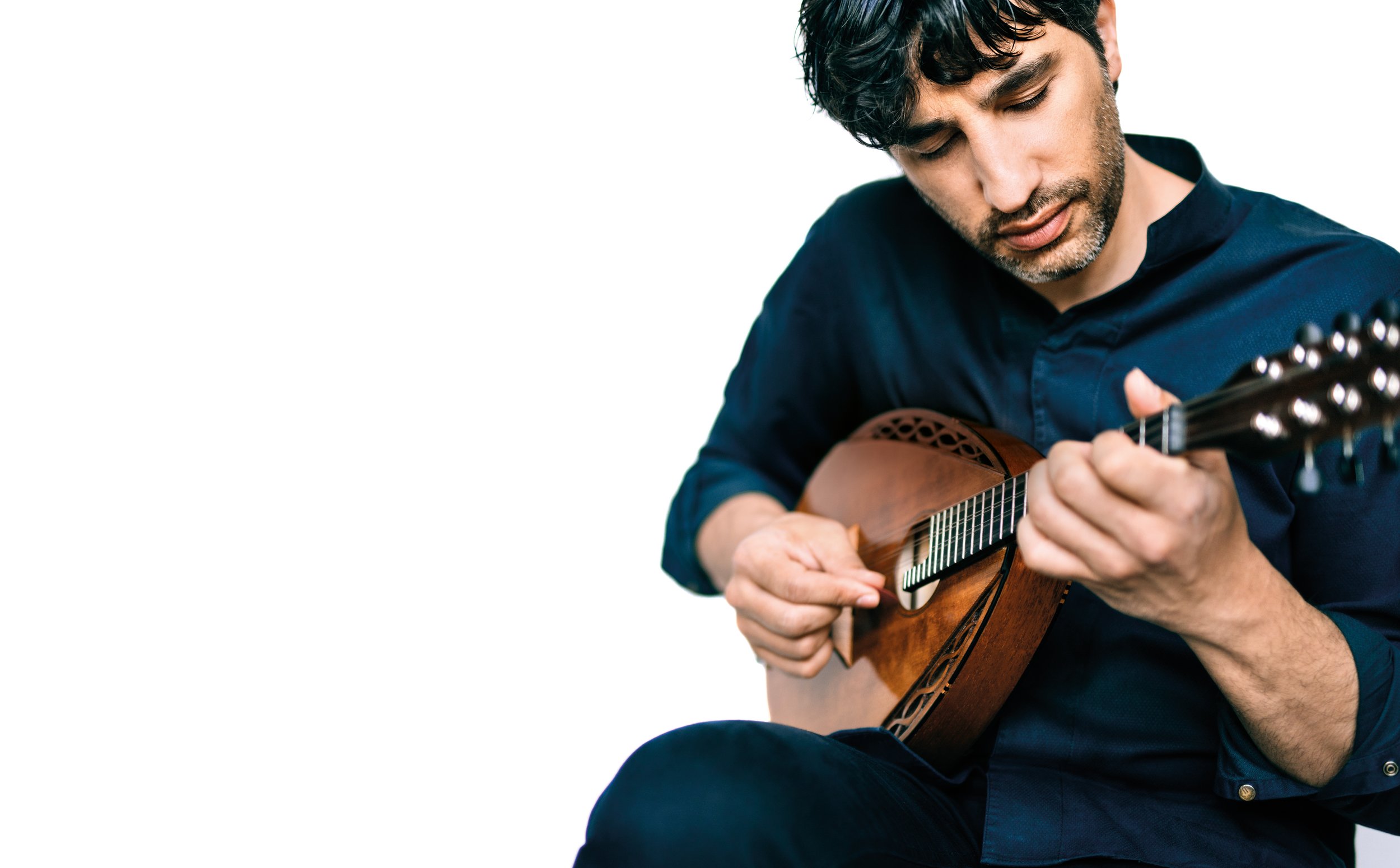Avi Avital and Miloš Karadaglić bring fresh musicianship to mandolin and guitar
The Israeli and Montenegrin artists make a dynamic duo, interweaving Bach, Glass, and a Duplessy premiere
The Vancouver Recital Society presents Avi Avital and Miloš Karadaglić in a sold-out concert at the Vancouver Playhouse on Sunday (November 14).
THE MUSIC THAT Israeli mandolinist Avi Avital and Montenegrin guitarist Miloš Karadaglić plan to present at their upcoming Vancouver Recital Society concert is intriguing enough. Once you learn how they plan to sequence their concert, the intrigue only strengthens.
On their set list, you see, are four pieces by Johann Sebastian Bach, including excerpts from his second English Suite and the immortal Well-Tempered Clavier. That in itself is no surprise: Avital’s 2012 recording, Bach, was so well received that it’s recently been reissued with an additional 33 minutes of the German master’s music. But also on the program are a further four works from living minimalist master Philip Glass—and rather than present Glass and Bach in two discrete chunks, the performers plan to employ a kind of compare-and-contrast strategy, interweaving baroque music and minimalism together.
“Really, the experiment is ‘What happens if you go back and forth from Bach to Glass and back?’” Avital explains on the line from a Bay Area hotel. “What kind of experience is that for the listener? How do you hear Glass after you’ve just heard Bach, and vice versa? How is your ear prepared for Bach after three or four movements from Glassworks, which is a completely different musical experience?
“In other words, if we played Bach and then Bach and then Bach, the ears, after some time… They don’t come fresh to the music,” the mandolinist continues.“So I really like, in all my concerts, to have a contrasting element that acts as a separator, but that also allows you, within a concert of an hour or 90 minutes, to have your ears fresh for the next thing. This is important for me, and also for the listener. I know myself from the other side, sitting in the audience, that I love those concerts where you always get the next ‘dish’, but your palate is clean and fresh and ready for the next thing. This is what we’re hoping to generate with this program.”
It’s unlikely that any ears could ever tire of the pairing of Avital and Karadaglić. The former has almost single-handedly revived the mandolin as a concert instrument: although composers as revered as Antonio Vivaldi and Ludwig Van Beethoven wrote for the smallest member of the lute family, it was almost ignored during most of the 19th century and had devolved to a folk instrument by the turn of the 20th.
Avital’s combination of charisma, impeccable musicianship, and an adventurous spirit has turned this around. Karadaglić brings a similar blend of qualities to the nylon-strung guitar, which had suffered a similar fate in concert-music circles, although not to such an extreme extent. (Andrés Segovia, it could be argued, was the Avital of the classical guitar, bringing it back to the forefront of musical life in the 1930s and ’40s.)
Handsome, intense, gifted, and signed to the prestigious Deutsche Grammophon label, the two seem born to perform together, something Avital realized upon first encountering his Balkan counterpart.
“I met him for the first time at a Deutsche Grammophon gathering or celebration, when they moved to their new offices in Berlin. I was just freshly signed, maybe not even officially signed, and he was also rather new. He played on that occasion, and I was completely mesmerized. I really adored his playing. It took 10 years for us to work together, but the seed was planted back then!”
In the interim, the two musicians began to assemble an equally accomplished cast of accomplices. For their current tour, for instance, the Philip Glass pieces have been arranged by the extraordinary Brazilian guitarist and composer Sérgio Assad. Also on the program is the premiere of Sonata for Guitar and Mandolin by the French guitarist, composer, and extrovert Mathias Duplessy, whose well-schooled but approachable music encompasses modern composition, Tuvan and Mongolian influences, Chinese folk music, flamenco, and Roma jazz. Although a generation older than Avital and Karadaglić, he’s clearly a kindred spirit.
“Indeed!” says Avital. “This was also very much of a discovery for me. It was Miloš who brought this wonderful idea to the table, as a composer who he’s known before I did. He kind of introduced me to his music, and I was listening to it and I thought it was a brilliant idea that he would write for us. And he was very open about it and enthusiastic about it, even. And he did manage to capture really everything that we are as musicians, Miloš and myself, but also our instruments.
“There’s a lot of reference to Italian film music: with the mandolin, you have to think of it,” he continues. “And some of that film music is sentimental, theatrical, maybe. The first movement, actually, is a tribute to Ennio Morricone, the big film composer, but all of it is actually very sentimental and romantic—but without being kitsch at any time.”
Duplessy’s populist warmth is certain to add further welcome contrast to a program that could otherwise lean towards the cerebral, Bach and Glass being among the most mathematical of composers. Sonata for Guitar and Mandolin could also mark the beginning of an ongoing collaboration.
“That’s really the hope,” says Avital, who has already commissioned over 100 new works for his chosen instrument. “And with every new piece written, I discover something about the mandolin that I didn’t think about before. This is really the wonderful artistic value in commissioning. When a composer sets out to write for the mandolin, they’re full of associations. The mandolin itself, for anyone, has some kind of meaning, some kind of reference or metaphor….For some people it’s Italian music; for others it’s bluegrass or Brazilian forró. For some people, it reminds them of their ancestors in Russia or in Israel or in Poland.
“The mandolin has been widespread through history, just never as a concert instrument. So that makes it a playground, really, for composers—and this repertoire will remain for future generations of mandolin players to play.”













